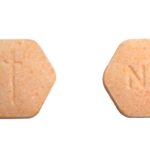Rural West Virginia communities face unique challenges in addressing addiction and supporting long-term recovery. However, these tight-knit communities also possess incredible strengths that, when harnessed effectively, can create powerful networks of support for individuals on their recovery journey. This article explores the landscape of addiction recovery in rural West Virginia and offers insights into building robust community support systems.
The Current State of Addiction and Recovery in Rural West Virginia
West Virginia has been hit particularly hard by the opioid epidemic. Rural areas often bear the brunt of this crisis, with limited resources to combat the problem. However, there’s hope on the horizon. Community-based initiatives and organizations like Lifeline Addiction Specialists are making strides in providing support and treatment options, even in the most remote areas of the state.
Unique Challenges for Recovery in Rural Settings
- Limited Access to Services: Many rural areas lack nearby treatment facilities or support groups.
- Transportation Issues: Long distances and lack of public transportation can make it difficult to attend meetings or appointments.
- Privacy Concerns: In small communities, maintaining anonymity can be challenging.
- Economic Factors: Rural areas often face higher unemployment rates and lower incomes, which can contribute to stress and substance abuse.
Breaking the Stigma: Strategies for Rural Communities
- Education: Host community workshops and school programs to increase understanding of addiction as a treatable disease.
- Open Dialogue: Encourage community leaders and recovered individuals to share their experiences.
- Media Engagement: Work with local media to portray accurate, compassionate stories about addiction and recovery.
- Language Matters: Promote the use of non-stigmatizing language when discussing addiction and recovery.
Building Strong Community Partnerships
Successful recovery support in rural areas often relies on partnerships between various community entities:
- Churches: Many rural communities have strong faith-based networks that can provide spiritual support and meeting spaces.
- Schools: Implementing prevention programs and supporting students affected by family addiction.
- Local Businesses: Creating “second chance” employment opportunities for individuals in recovery.
- Healthcare Providers: Collaborating on comprehensive care plans and referral systems.
Establishing Rural Recovery Support Groups
While traditional 12-step programs can be effective, rural communities may benefit from flexible, hybrid approaches:
- Rotating meeting locations to improve accessibility
- Combining support for various addictions in areas with limited populations
- Training local community members as peer support specialists
- Incorporating outdoor activities and local traditions into recovery programs
Leveraging Technology for Recovery Support
Technology can bridge gaps in rural recovery support:
- Telemedicine: Allowing rural residents to connect with addiction specialists remotely
- Virtual Support Groups: Providing access to a wider network of peers in recovery
- Mobile Apps: Offering tools for tracking sobriety, managing triggers, and connecting with support
The Crucial Role of Family and Friends
In rural communities, family and social networks play a vital role in recovery:
- Educating families about addiction and healthy support strategies
- Offering support groups specifically for family members of those in recovery
- Encouraging the entire family unit to participate in the recovery process
Lifeline Addiction Specialists: Supporting Rural Recovery
At Lifeline Addiction Specialists, we understand the unique needs of rural West Virginia communities. Our initiatives include:
- Partnerships with rural healthcare providers to expand medication-assisted treatment options
- Telehealth services to provide ongoing support and counseling

Economic and Social Benefits of Strong Recovery Support
Investing in recovery support can yield significant benefits for rural communities:
- Reduced healthcare and criminal justice costs
- Increased workforce productivity
- Stronger families and reduced rates of child neglect
- Improved community safety and well-being
Get Involved: Supporting Recovery in Your Community
Every community member can play a role in supporting recovery:
- Volunteer with local recovery organizations
- Advocate for recovery-friendly policies with local government
- Offer mentorship or employment opportunities to individuals in recovery
- Educate yourself and others about addiction and recovery
Take Action Today
Whether you’re seeking help for yourself, a loved one, or want to support recovery efforts in your community, Lifeline Addiction Specialists is here to help. Call us at 681-207-7105 to learn more about our services and how you can make a difference in rural West Virginia’s recovery landscape.
Together, we can build stronger, healthier communities that support long-term recovery for all.




